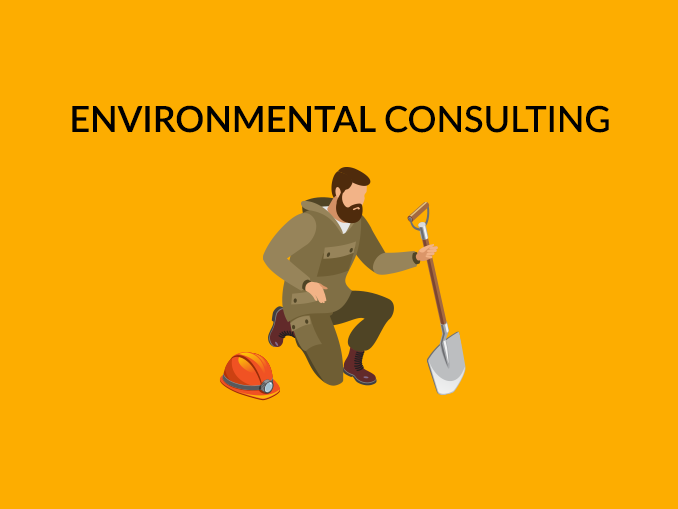
For anyone interested in starting their own home-based business or expanding it, formal business planning can prove to be very helpful. The pitfalls that could occur should be known and a plan created to avoid them. A formal business plan should be created before a new company is started. It includes details about the business' structure, management, marketing strategy and financial information. It is essential that it be kept current in order to permit owners to make any changes.
Start a home-based company
Before starting a home-based venture, there are several things you should consider. While you might be tempted to work from home and save money, this may not be the best way to run a business. It is important to learn about the licensing requirements in your state. Then, you can create a business plan. You should then create a business plan. This document should outline the details of your company, including how your products and/or services will be promoted.
Running your own business from home is a great way to make your own schedule. You can take your children to their doctor's appointment in the morning, or shop at the grocery store in the afternoon. You don't have to worry about your boss all day. You can work until you feel like it, so you can go to dinner and get back to work without needing to leave the house. The best thing is that home-based workers enjoy what they do.

Develop a business plan
Make sure you include both your goals and your objectives when writing your business plan. The latter should show what you are trying to achieve with your business. The SMART acronym (Specific, Measurable. Attainable. and Timed) should be used to guide the plan. This format will allow you to narrow your focus and attract investors. The plan will also help you evaluate whether your business is feasible or not.
Professionally formatted business plans are important as they will be evaluated by investors and lenders. It should reflect your business goals, and should be professionally written. The document should be signed by two people. It will help you stay focused and identify areas of improvement. It will save you from making costly mistakes when starting a home business. You will be able to attract more customers and generate more profits with a business plan.
Obtaining a business licensing
First, you need to get a business licence and any other permits if you want to start a house-based business. Licenses generally have stricter requirements and are usually more permanent. The business permit can cover health and safety as well as flammable and professional services. These two types of permits can be confusing and people often get confused when they are talking about home-based companies.
Getting a business license for home-based businesses requires that you register with your local government. You will need a general license to operate a business in most areas. You can use this license to do business in the jurisdiction you live in. Visit your local tax department or business licensing office for more information about requirements for business licenses.

A workspace is a place where you can work.
It doesn't matter if you are a freelancer, business owner or professional, having a designated space in your home is essential to your success. You will be able to focus on your work, and your clutter will be minimized by having a dedicated space. Professionals often use their darkroom or spare space. You will have a better work environment and more productivity. Be aware that there are many factors to consider before making the leap.
You must first create a place that you feel is conducive to your goals. Setting goals can help you set clear goals regarding what you want from your workspace. You want your home office to be a productive place, so make sure you have the right equipment. Select energy-efficient furniture and lighting.
FAQ
How can I become a successful consultant
Find an area that you are passionate about. First, build relationships. Knowing what your clients want and how they work is key. Finally, you have to deliver results for your clients.
While you don’t necessarily have to excel at every task, you should be better than all the rest. It is important to be passionate about what you do. It doesn't suffice to say, "I will be a consultant." It's important to believe in your abilities and do what you love.
What qualifications do you require to become a Consultant?
It's not enough just to have an MBA degree; you must also demonstrate experience working as a business consultant. At least two years experience in training and/or consulting for major companies is required.
You will need to have worked closely alongside senior management teams in order to develop strategy projects. This means you'd have to be comfortable presenting ideas to clients and getting buy-in.
A professional qualification exam like the Certified Management Consultant (CMC), Chartered Management Institute, is required.
What tax do I have to pay on consulting income?
Yes, you must pay tax on the consultancy profits. The amount you earn depends on your annual income.
You can also claim expenses if you are self-employed. This includes rent, childcare, food, and transportation.
You can't deduct the interest on loans, vehicle damage, or equipment costs.
You can only claim back 25% of your expenses if you earn less than PS10,000 a year.
But even if you're earning more than this threshold, you might still be taxed depending on whether you're classed as a contractor or employee.
The tax system for employees is PAYE (pay-as-you earn), while VAT is applied to contractors.
Why do you need consultants?
There are many factors that could lead to you hiring consultants.
-
Perhaps your company has a specific problem or project you need to address
-
You want to improve your own skills or learn something new
-
It is important to work with an expert on a subject area
-
You have no other choice but to do the job.
-
You feel overwhelmed by all the information and don’t know where to begin.
-
You can't afford full-time employment
You can find good consultants by word of mouth. Ask your network if they are aware of any credible consultants. If you already know someone who works as a consultant, ask him/her for recommendations.
You can use online directories such as LinkedIn to find consultants in your local area.
Can anyone become a consultant
A consultant is someone who assists you in achieving your goals by offering advice and suggestions on how to achieve it faster, cheaper, and so forth.
A consultant may help you solve problems, make decisions, or negotiate with others.
Consultants are often hired to help with specific tasks and projects.
Consultants are usually paid hourly, daily or per project.
What are the advantages of being a consultant?
Consultants have the ability to choose when and on what they work.
This means that you are able to work from wherever you're at any time.
It also means you can easily change your mind without worrying about losing money.
Finally, you have the ability to control your income levels and establish your own schedule.
Statistics
- Over 62% of consultants were dissatisfied with their former jobs before starting their consulting business. (consultingsuccess.com)
- According to statistics from the ONS, the UK has around 300,000 consultants, of which around 63,000 professionals work as management consultants. (consultancy.uk)
- 67% of consultants start their consulting businesses after quitting their jobs, while 33% start while they're still at their jobs. (consultingsuccess.com)
- "From there, I told them my rates were going up 25%, this is the new hourly rate, and every single one of them said 'done, fine.' (nerdwallet.com)
- WHY choose me: Why your ideal client should choose you (ex: 10 years of experience and 6-week program has helped over 20 clients boost their sales by an average of 33% in 6 months). (consultingsuccess.com)
External Links
How To
How can I find a good consultant for my business?
The first step in finding a good consultant is understanding what you want from your consultant. Are you looking for them to improve the performance of your website? Do you need them to optimize your site so that it ranks higher in search engines' results? Or perhaps you just want someone who can tell if there are any issues with your current hosting provider. Once you know what type of services you need, you should start looking at different companies. Many consultants claim to be able to provide these services. However, only a handful of them actually deliver on their promises. How do you select the right consultant for your project? Here are some things that you need to keep in mind when selecting a consultant.
-
Get recommendations. This is the best way to select a consultant. You shouldn't hire someone you haven’t met before as they will probably charge you too much. You also don't want someone with a poor reputation to work for you. If you have the good fortune to get referrals from trusted people, great! Even if you don’t have any referrals, you can still look online for reviews. Check for testimonials or case studies that show how clients have used your services.
-
Ask around. Many people are not aware of the benefits of hiring a consultant. They think that since they're currently doing fine, they don't need to make changes. This is often false. Even if you are seeing great results, it is likely that you have not been keeping up to date with technology and trends. Your business could be missing out if it relies on outdated methods. Ask around to find a qualified consultant.
-
Make sure to verify their qualifications. No matter how small your project is, it's important to ensure that the consultant you choose has the necessary skills. You need to ensure that the person you hire is qualified to do the job and has sufficient knowledge in the subject.
-
Find out the type of projects they specialize. Although it might seem like everyone can do everything, this is not true. Some areas require specific types of training or education. You won't hire a Drupal developer if you need to build a WordPress template. It is the same for programming languages, graphic design, and so on. Be sure to ask what kinds of projects they typically work on.
-
You should know their prices. You don't want a consultant who charges too much. You also don't want too much. There are many different types of consultants. Some consultants bill by the hour, while others charge per project. Knowing exactly what you're paying upfront will save you money down the road.
-
Understand what they offer. Do they offer free consultations? Will they give you advice on how to set up your own system? Can they guarantee your site will rank higher if you work with them? You can cancel your consultation at any time without penalty if you are not satisfied with what you heard.
-
Finally, find out if they offer discounts for multiple months or years. Many consultants offer extended discounts for long periods. Although you do not have to commit to a year, it is possible to take advantage of any offers they may offer.